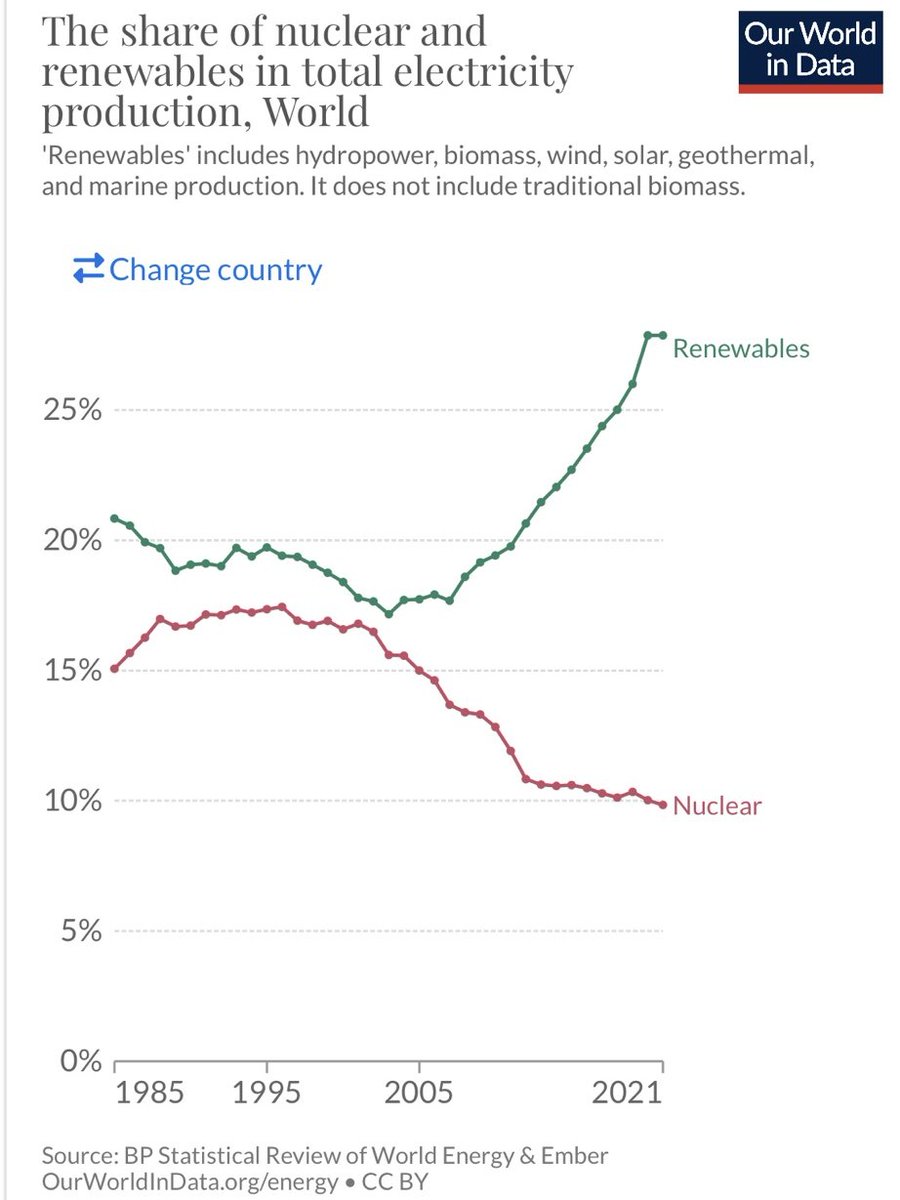The Role of Nuclear Power in the World
This blog looks at the role of nuclear power in the world and how it is declining while renewable power is growing exponentially. It also looks at the German termination of nuclear generation and the International Energy Agency's report on renewables.

Prof. Stefan Rahmstorf 🌏 🦣
Head of Earth System Analysis @ Potsdam Institute for Climate Impact Research & professor of Physics of the Oceans @ Potsdam University. Dad. Opinions my own!

-
The role of nuclear power in the world is declining, while renewable power is growing exponentially.
— Prof. Stefan Rahmstorf 🌏 🦣 (@rahmstorf) April 13, 2023
It's cheaper, safer, mass produced, rapidly deployed and without waste and proliferation problems.
As part of the trend, Germany terminates nuclear generation this Saturday. 1/7 pic.twitter.com/OzSsKulQde -
According to the International Energy Agency IEA, renewables, grids and storage now account for more than 80% of global power sector investment.
— Prof. Stefan Rahmstorf 🌏 🦣 (@rahmstorf) April 13, 2023
And the latest #IPCC report also sees the by far largest climate mitigation potential in solar and wind power. 2/7 pic.twitter.com/7bX9UMgn1t -
And by the way, this. 3/7https://t.co/Oh3LG06IW8
— Prof. Stefan Rahmstorf 🌏 🦣 (@rahmstorf) April 13, 2023 -
Germany is now already producing far more electricity from renewables than it ever did with nuclear, and it helped France's ailing nuclear fleet last year with major power exports to France.
— Prof. Stefan Rahmstorf 🌏 🦣 (@rahmstorf) April 13, 2023
The German renewables share is planned to reach 80% by 2030. 4/7 pic.twitter.com/9N5m976OCl -
And here's the German greenhouse gas emissions 1990-2022, together with the goals for the future. Per capita CO2-emission is 8 tons, vs. 14 tons in the US and Australia or 15 tons in Canada (2021). No complaints from these countries, please. 5/7 pic.twitter.com/AAkBdQN2oz
— Prof. Stefan Rahmstorf 🌏 🦣 (@rahmstorf) April 13, 2023 -
The nuclear phase-out by end 2022 was proposed by Angela Merkel's conservative coalition in 2011 and won cross-party support with 86% pro votes in the Bundestag. The current government has extended the operation of nuclear plants until 15 April 2023. 6/7
— Prof. Stefan Rahmstorf 🌏 🦣 (@rahmstorf) April 13, 2023 -
Germany follows Italy, Austria and Ireland in abandoning (planned or realized) nuclear power. That reduces the # of countries with nuclear power from 32 to 31, out of 195 nations. Others plan to get out: Spain, Switzerland, Belgium. Or stay out like Australia, New Zealand. 7/7
— Prof. Stefan Rahmstorf 🌏 🦣 (@rahmstorf) April 13, 2023
